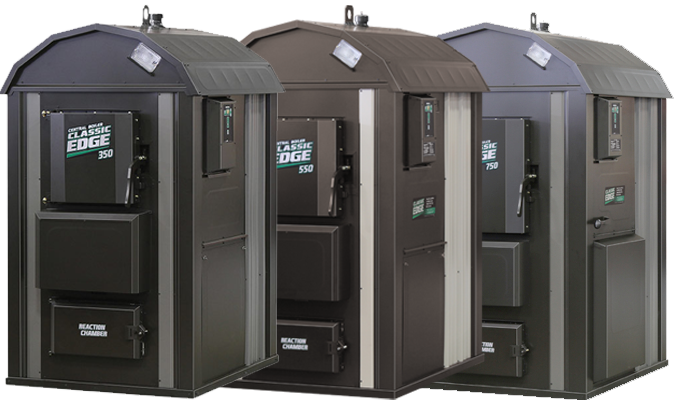Outdoor furnaces, also known as outdoor wood boilers or outdoor wood stoves, offer several benefits, especially for homeowners in rural or cold climates. Here are some of the advantages of using an outdoor furnace:
Efficient Heating: Outdoor furnaces can provide efficient and consistent heat for your home and other buildings such as garages, workshops, and barns. They are capable of heating large spaces and maintaining a comfortable temperature even in extremely cold weather.
Cost Savings: Burning wood as a fuel source can be cost-effective, especially if you have access to a steady supply of firewood or wood pellets. This can result in significant savings compared to traditional heating methods like electricity, propane, or oil.
Energy Independence: Using an outdoor furnace reduces your reliance on fossil fuels and centralized energy sources. You have more control over your heating fuel supply, which can be particularly valuable during energy price fluctuations.
Reduced Carbon Footprint: Wood is considered a renewable and low-carbon fuel source when harvested sustainably. Burning wood in an outdoor furnace can have a smaller carbon footprint compared to fossil fuels, especially if the wood is sourced locally.
Zoned Heating: Many outdoor furnaces can be connected to your home’s existing heating system, allowing you to create different heating zones and customize the temperature for different areas of your property.
Safety: Having the furnace located outdoors reduces the risk of fire and carbon monoxide exposure inside your home. Properly installed and maintained outdoor furnaces are designed to operate safely.
Longevity: Outdoor furnaces are typically built to last for many years with proper maintenance. They are constructed from durable materials that can withstand exposure to the elements.
Minimal Indoor Space Requirements: Since the furnace is located outside, it doesn’t take up valuable indoor space. This can be especially advantageous for homes with limited basement or utility room space.
Backup Heating Source: Outdoor furnaces can serve as a reliable backup heating source in case of power outages. They can operate independently of the electrical grid.
Versatility: Some outdoor furnaces are designed to burn various types of biomass fuels, such as wood, wood pellets, corn, or other agricultural waste products, giving you flexibility in fuel choices.
Despite these benefits, it’s essential to consider the potential drawbacks and challenges associated with outdoor furnaces, such as the need for regular maintenance, proper fuel storage, and adherence to local regulations. Additionally, the environmental impact of burning wood depends on responsible sourcing and efficient combustion practices. Before installing an outdoor furnace, it’s advisable to consult with a heating professional to assess its suitability for your specific needs and location.

